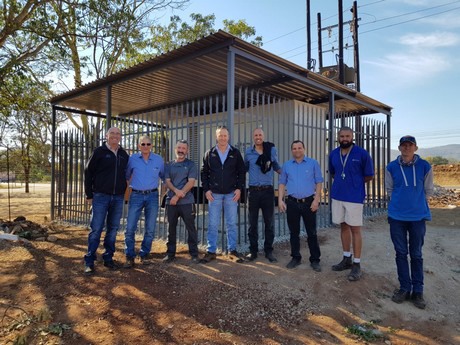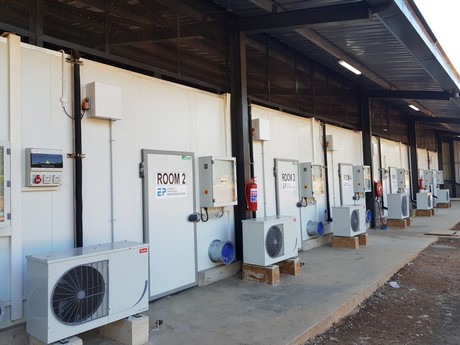In June this year, in a ceremony at Letsitele - in the Limpopo province of South Africa - BioBee South Africa, together with its shareholders: BioBee Sde Eliyahu, ZZ2 and Hishtil SA inaugurated a new production facility.
During the ceremony, Ran Gan-El, BioBee Sde Eliyahu’s CEO announced that these new state of the art facilities will enable a higher production capacity of BioAnagyrus, BioCryptolaemus, BioPerminutus and BioAphytis (the newest parasitic wasp to be produced for the upcoming season) and other Mealybug natural enemies, to supply the growing demand.

Mealybugs are devastating pests in a large array of crops. With their piercing-sucking mouthparts, they suck sap from the plant's phloem, secreting honeydew that serves as a substrate to black sooty mold. The latter, on top of inflicting aesthetic damage to fruits, seriously disrupts the plant's photosynthesis and fitness. Mealybugs are capable of transmitting viral diseases in plants of great economic importance.
Mealybugs are especially fond of tropical and subtropical environments. They attack a variety of agricultural crops from fruit trees: citrus, vine, persimmon; greenhouse vegetables such as sweet pepper, tomato, eggplant and a multitude of ornamental plant species, chiefly under greenhouse conditions.
Recently, authorities worldwide have banned more and more chemicals that were used for controlling the Mealybug and have become more stringent regarding the maximum residue level (MRL) legally tolerated in or on agricultural commodities or feed. All these changes have made biological control a viable alternative.

“We pride ourselves in providing high-quality products and dedicated field services – which means we constantly search for new solutions and develop new products to help our customers manage the challenges they face” explained Eldad Peer, BioBee’s SA CEO.
With thousands of hectares of citrus, grapes, vegetables and ornamentals being treated with IPM products and solutions, increasing numbers of South African growers, wholesalers and retailers realize that Integrated Pest Management (IPM) is the most effective and sustainable pest management system.
Rami Friedman, BioBee SA’s previous CEO, who was at the inception of the new plant said “I am convinced, from the way activities are developing and progressing under BioBee’s SA new management that activities will continue to grow and expand. The next phase of expansion will surely occur sooner than originally planned”.
For more information:
Sandra Langer
BioBee
Tel: +972 507 744 438
Email: sandral@biobee.com
www.biobee.com
